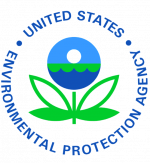Welcome to the new SBIR.gov, to assist in getting you situated with the system, a preview of the new login and registration process is available here. Please reach out to the website support team with any questions via sba.sbir.support@reisystems.com
Award
Portfolio Data
AI-Driven Recycling Centers for Disadvantaged Communities: Improving Recovery, Safety, and Costs
Award Year: 2025
UEI: RBJMS979DDU3
HUBZone Owned: No
Woman Owned: No
Socially and Economically Disadvantaged: No
Congressional District: 22
Tagged as:
SBIR
Phase II

Awarding Agency
EPA
Total Award Amount: $400,000
Contract Number: 68HERC25C0006
Agency Tracking Number: B25P2-5B02
Solicitation Topic Code: 5B
Solicitation Number: 68HERC24R0184
Abstract
Creating the Foundation for Modern Recycling Facilities The processing technology used in the recycling industry has remained unchanged since the 1980s, relying on manual labor and rudimentary machinery to solve our waste crisis. For the past 40 years, municipalities have shelled out egregious tipping fees for ineffective and dangerous sorting practices. Cities across the U.S. need a new recycling processing system to correct the backward economic model plaguing the sector. Our project has developed a rapidly deployable, autonomous robotic sorting system to build the foundation for the next era of recycling facilities. Rather than relying on slow-moving waste haulers, KLAW Industries has developed, deployed, and operated this technology to reduce municipal tipping fees by 13%. With an autonomous sorting system to match the modern waste stream, we have demonstrated our ability to reduce product contamination to 0.5%, lower capital costs by 58%, and decrease excess hauling by 94%. Technical Feasibility & Comparative Performance During Phase I, we demonstrated our system's accuracy of 90% and validated our 13% cost savings to municipalities by processing single-stream recycling directly from the City of Binghamton in pilot operations. KLAW Industries' researchers have made breakthrough innovations in feature extraction and convolutional neural networks during Phase I to make rapidly deployable autonomous sorting possible at a local level, which we have demonstrated on over 6 tons of recyclables. During Phase II, we will commercialize the technology and deploy a full-scale prototype to process recyclables in regular operations. We will continue our partnership with the City, bringing cost-effective recycling to the disadvantaged community of the East Side of Binghamton. Our target market is cities and commissioners of public works who face the unpleasant dilemma between paying more for recycling or saving money, time, and headaches by dropping the program, as many low-income towns and villages already have. Market Size & Performance Benefits & Environmental Benefits With a total available market (TAM) of $37.8B in the U.S., we will phase out diesel-powered hauling enterprises and usher in technology companies focused on long-term material recovery. The recycling sector injury rate is 3.2 per 100 full-time-equivalent workers. Autonomous sorting protects critical workers by moving away from conveyor belts and toward computer terminals. With an increased sorting accuracy of 90% and a 13% lower tipping fee validated during Phase I, we will begin sorting, classifying, and reusing waste locally to achieve a recycling rate of 50% by 2030.
Award Schedule
-
2025
Solicitation Year -
2025
Award Year -
October 16, 2024
Award Start Date -
October 17, 2026
Award End Date
Principal Investigator
Name: Jack P Lamuraglia
Phone: 607-768-9982
Email: jack@klawindustries.com
Business Contact
Name: Jacob R Kumpon
Phone: 607-222-2291
Email: jacob@klawindustries.com
Research Institution
Name: N/A
